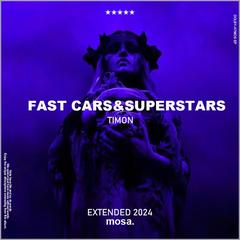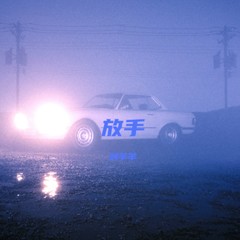Andrew Lloyd Webber
父亲William Bill Southcombe Lloyd Webber是知名的风琴演奏家祖父William Charles Henry Webber是一个优秀的男高音母亲Jean Hermione Johnstone是小提琴家姨妈是剧院演员弟弟Julian Lloyd Webber是著名提琴手(大提琴) 所以…可谓〝音乐传家〞,也能理解韦伯先生才气纵横,并非偶然! 而韦伯先生,听说小时候七岁便会作曲,曾经立志要当史学家,在他11岁到13岁之间,还写了有关古迹方面的研究论文! 那位在剧院演出的姨妈带领了他进入了剧院,充满魅力的舞台,他便曾在11岁时用积木与纸板盖了个玩具剧院,而他为了这个玩具剧院作的作品,在多年后《爱的观点》中还有被用上呢! 1964年,韦伯(16岁)获得了牛津大学的奖学金,于是1965年进入牛津大学念书,但仅念了一学期便辍学,又于1967年到皇家音乐学院学管弦乐编曲。 在此期间,韦伯认识了Tim Rice,两人志趣相投,从此展开了多年的合作关系,一个作曲,一个作词,堪称最佳拍档! 而让他们俩首次尝到成名滋味的音乐剧是:约瑟夫与神奇的梦幻彩衣《Joseph and the Amazing Technicolor Dreamcoat》,这出戏本来不过是某学校公演的表演曲目罢了,没想到,经过修定改写后,再度上演,便获得了大众的注意。 在《约》片之后,趁着圣经故事的风潮,他们再度以耶稣为主角,制作《万世巨星Jesus Christ Superstar》,此出摇滚音乐剧因牵涉到对耶稣的议题,还颇受教会人士的争议(不过这出戏也是教会人士支持才完成创作的)由于批评颇多,因此其票房不甚理想,造成Webber与Tim Rice间有了不愉快的裂痕。 Andrew Lloyd Webber (b. 1948) is the most successful composer of musicals of his generation and also a breaker of molds for the type. His predecessors were for the most part American: New York-based songwriters steeped in Broadway tradition. Lloyd Webber saw his share of shows as a child, too, but he was born in London, the son of William Lloyd Webber, Director of the London 安德烈洛伊韦伯(Andrew Lloyd Webber)生于1948年,英国South Kensington College of Music, and was trained at the Royal Academy of Music, hardly the sort of place where you'd be likely to hear Oklahoma!Nevertheless, Lloyd Webber hooked up with lyricist Tim Rice, and the two began work on what would be a typical project for them, a musical based on the Biblical story of Joseph and his coat of many colors. Titled Joseph and the Amazing Technicolor Dreamcoat, it brought in a strong rock & roll influence. After writing a second unproduced musical, the two hit on the idea of writing a musical based on the life of Jesus Christ from the point of view of Judas (not the sort of idea likely to occur to a Broadway composer) and, again, imbued with rock. Unable to finance a stage version, Lloyd Webber and Rice did manage to record their show, and Jesus Christ Superstar went on to sales in the millions all over the world. The hit musical version followed.Lloyd Webber and Rice then split, with the composer writing film scores and working on an abortive musical with playwright Alan Ayckbourne (Jeeves), after which Rice returned with another audacious idea: a musical based on the life of Argentine dictator (or dictator's wife, depending on how you look at it) Eva Peron. Evita (1976) repeated the pattern of Jesus Christ Superstar, with its hit record album followed by a successful theatrical run in the West End and then on Broadway.The Lloyd Webber-Rice partnership, having proved itself again, was severed (Rice went on to write Chess), and Lloyd Webber next wrote a musical revue based on T.S. Eliot's whimsical poems about Cats (1981). This time the show came before the album, and it's still running. By this time, Lloyd Webber had largely abandoned the rock elements of his work in favor of what critics found a pastiche style that borrowed from classical and opera sources. He had also become a brand name (and a corporation, the Really Useful Company) that assured at least a modest success for subsequent shows, though critics were often unimpressed with his efforts.Downgrading the status of his lyricists, Lloyd Webber went on to a series of successful shows (Song and Dance, Starlight Express) before scoring another long- (and still-) running hit in 1987 (1988 in New York) with a musical adaptation of The Phantom of the Opera. Aspects of Love (1989-1990) was less successful, however. Lloyd Webber debuted a musical adaptation of the Billy Wilder film Sunset Boulevard in the early '90s and it proved to be one of his rare disappointments, failing to earn either good reviews or healthy ticket sales. In 1996, Alan Parker adapted Evita for the screen; Lloyd Webber and Tim Rice contributed a new song, "You Must Love Me," to the production, which starred Madonna. "You Must Love Me" won the Best Original Song award at the 1997 Academy Awards.


 The Phantom of the Opera - Andrew Lloyd Webber
The Phantom of the Opera - Andrew Lloyd Webber
























